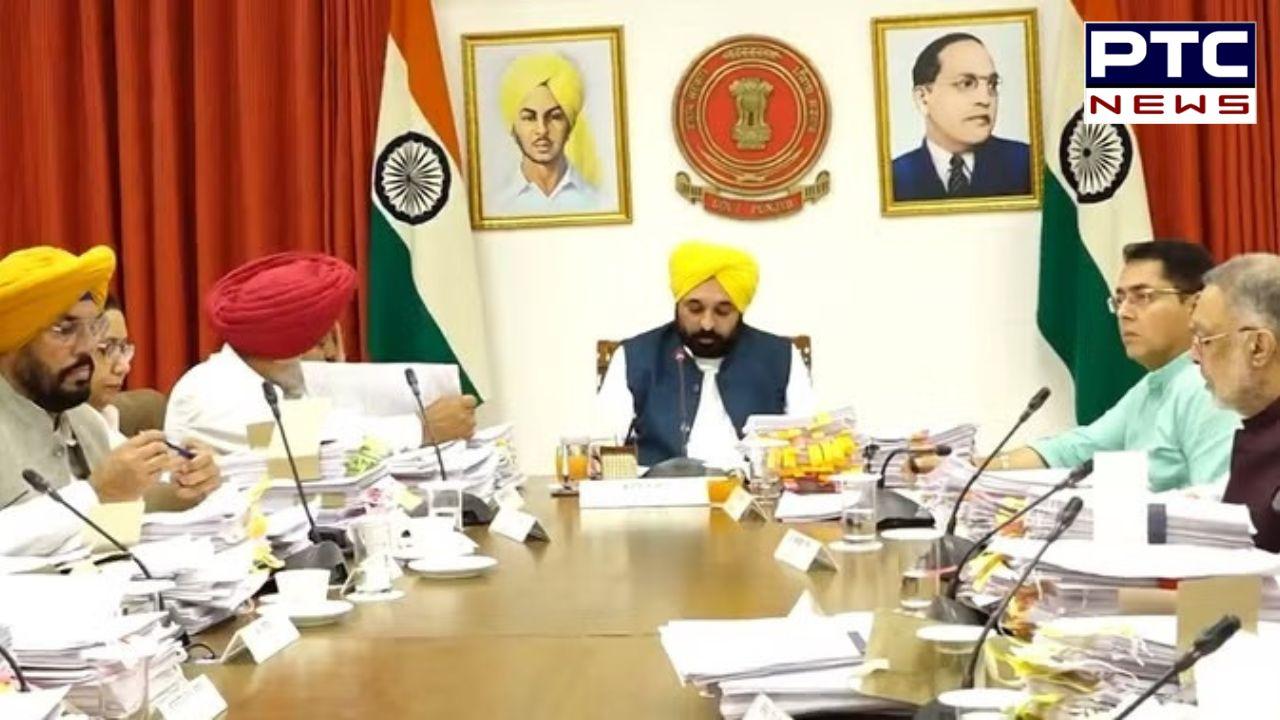

Punjab Cabinet okays new excise policy; birth and death registration process simplified
PTC Web Desk: The Punjab Government has approved the new excise policy for the upcoming financial year. Under the revised policy, liquor vends will be allocated through an e-tendering process to ensure transparency.
In a major administrative reform, changes have also been made to the birth and death registration process. Families will no longer need a court order if a child’s birth is not registered within one year; they can now complete the process at the Deputy Commissioner’s office. Additionally, in cases of deaths due to illness, doctors will now be required to specify the cause of death on the certificate.
Punjab Finance Minister Harpal Singh Cheema, while addressing the media after the Cabinet meeting, outlined several other key policy decisions, including stricter penalties for water pollution, an increase in cow cess, and the formation of excise police stations to curb liquor smuggling.
Key highlights of new excise policy
Cheema highlighted that before the Aam Aadmi Party (AAP) came to power, Punjab’s excise revenue under the Congress-led government was Rs 6,100 crore. However, with the implementation of a structured excise policy, the revenue increased substantially.
For the last fiscal year, the government had set a revenue target of Rs 10,145 crore, and by March, Rs 10,200 crore had already been collected. With a positive trend in revenue collection, the government is confident that it will reach its Rs 11,200 crore target for the upcoming year.
This year, 207 groups have been created for liquor vends, with each group valued at Rs 40 crore, allowing a 25% plus-minus margin. The quota for country liquor has been increased by 3%. The policy also brings relief to ex-servicemen by reducing their wholesale liquor licence fees from Rs 5 lakh to Rs 2.5 lakh.
Retail liquor shops can now stock 36 bottles instead of 12, and licence holders can sell beer, vodka, and wine. The licence fee for exclusive beer shops has also been slashed from Rs 2 lakh to Rs 25,000 per shop.
A new bottling plant has been approved under the policy, and the cow cess per litre of liquor has been increased from Rs 1 to Rs 1.5.
New excise police stations to curb liquor smuggling
To crack down on illegal liquor smuggling, the Punjab Cabinet has approved the establishment of excise police stations across Punjab. A special committee will determine the locations of these police stations to ensure maximum effectiveness in controlling illicit liquor trade.
Birth and death registration process simplified
The Punjab Government has also made significant amendments to the Punjab Death Registration Act, 2004. Parents who fail to register their child’s birth within one year will no longer have to seek legal intervention. Instead, they can complete the process with self-declaration and approval from the Deputy Commissioner’s office.
In another key amendment, doctors must now mention the cause of death on death certificates for cases involving illnesses. This measure is expected to bring greater transparency to the process.
Changes in CM's pilgrimage scheme
The Chief Minister’s pilgrimage scheme has been shifted from the Transport Department to the Revenue Department. A dedicated committee, appointed by the Chief Minister, will now oversee the programme and determine the list of religious places covered under the scheme. A detailed itinerary will be announced soon.
Strict penalties for water pollution
The Punjab Cabinet has approved the Water Amendment Act 2024, significantly increasing penalties for polluting water bodies. Earlier, violators faced imprisonment ranging from three months to one year. However, under the amended law, imprisonment has been removed, and offenders will now face monetary fines ranging from Rs 5,000 to Rs 15 lakh.
This amendment aligns Punjab with the reforms introduced by the Centre, which has already been adopted by 18 states.
A Secretary-level executive officer will be appointed to oversee the enforcement of this Act, alongside a designated chairman. However, stringent punishments for severe offenses will remain unchanged.
Approval for recruitment of 3,000 positions
In a long-awaited decision, the Cabinet approved the recruitment of 3,000 new positions across various government departments. This decision was pending since the last Cabinet meeting held on February 13, just after the Delhi elections.
Additionally, a special Assembly session was convened on February 23 and 24, during which the state government rejected the Centre’s draft agricultural marketing policy. The government is now focused on building stronger connections with farmers and agricultural stakeholders.
- PTC NEWS
